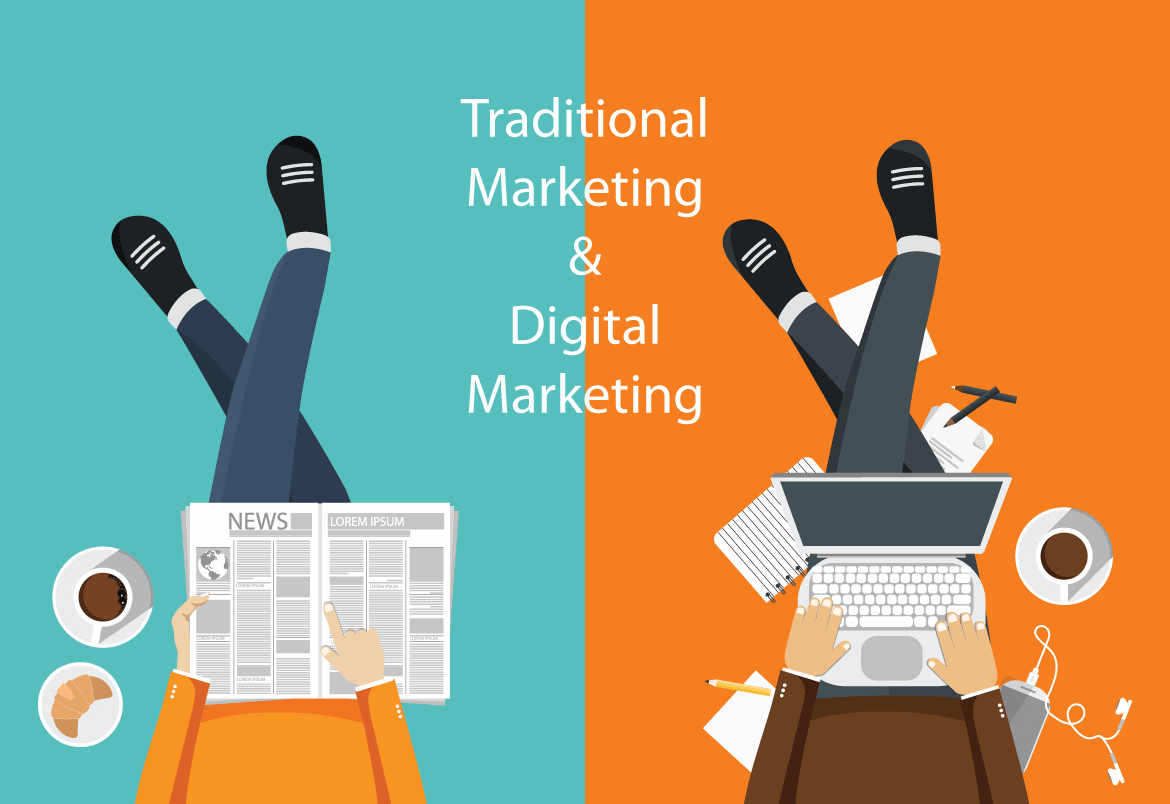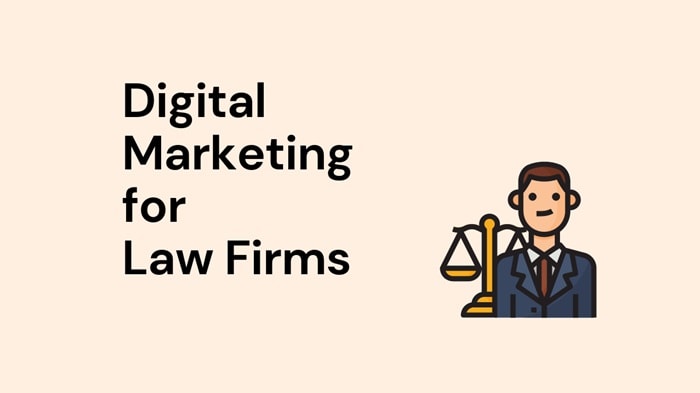In the often-tumultuous debate that arises in the instance of crisis, PR professionals running helter-skelter-reputation management are terms that come to mind. You envision a boardroom lined with lawyers with the CEO under piles of stress.
The truth is that good reputation management begins long before the PR disasters occur and, if it all works right, prevents those disasters. Reputation management has to do with how one makes sure customers and the public as a whole think highly of one’s business in the industry.
Reputation management is involved in all aspects, online and offline. For this resource document, however, we will limit our study to the methods through which small-scale businesses can protect and build up their online reputation.

Which entities should implement a reputation management strategy?
This is the complete opposite of the truth: the belief that a reputation management strategy is only required for big companies, which have to face the public. Actually, any company may fall prey to negative reviews, competitor attacks, or simple misunderstandings. This isn’t merely about highly litigious industries or businesses with some kind of ‘controversial’ staff.
The concept of online reputation management allows your business to have a voice in the places where conversations about your brand happen. It puts you at the helm of affairs as regards influencing conversations about your brand, thereby mitigating issues before they arise.
Customers
Regardless of whether your customers are businesses B2B or individuals B2C, it is highly likely that your business will be open to review. As such, it is very important that you put together a reputation management strategy that will help you respond to negative reviews and/or publicity when it occurs.
Competitors
Among very aggressive competitors. It is very easy for your business to become the target of negative attacks on social media sites or through online reviews. Of course, even when you have not experienced any issues from your current competitors, that does not shield you from a possible attack at any instant in the future.
Having an organized plan in place ahead of time to handle any negative attacks, if they occur, can potentially save you a lot of frustration.
You may also like: How to Increase Customer Reviews for Your Local Business
Staff
No matter how much emphasis you place on valuing and respecting your employees, at times, working relationships can break down. Dissatisfied employees can cause immense harm to a brand. It is crucial that you understand the full depth of how your employees or contractors may affect the standing of your business.
Which online platforms should be the primary focus of your strategy?
Reputation management often isn’t just about those so-called no-brainers such as social media, but a whole host of online spaces where positive and negative influences on your brand could spread.
Search Engines
The search engines should more often than not be the starting point for whatever customers or journalists who would want to look up information related to your organization.
However, when your brand is searched, your website will take only a couple of positions in the SERPs, whereas there are many more places on the first page of results where other mentions of your brand will rank.
These mentions might go from merely informative directories to mentions of much higher journalistic relevance, such as press articles or even a page dedicated to your brand on a competitor website.
Search Engine Accounts
In addition to the search-engine-ranked pages mentioning your brand, there’s Bing Places and Google Business Profile that include information about your business and reviews users have left.
Interestingly, these profiles may not have been created directly by you. The search engines often create them themselves, using data gathered from other trustworthy sources.
You may also like: How to Create a White Label SEO Business
Review Websites
There are plenty of other sites on which your customers can share experiences about your brand, including positive and negative reviews.
They are specific to an industry instance—those marketplaces Amazon and eBay operate general ones like Trustpilot and Yelp.
Social Media
If your business is part of the B2C sector, then there’s a very great likelihood that your brand is being talked about on varied social media platforms, whether you participate there or not. This may mean that customers are talking about your brand without directly tagging or mentioning you.
Social media is the greatest platform to measure the overall sentiment of your brand. Opinion changes like hail in heavy rain on social media, so the volatility factor is very high.
Forums
Websites such as Reddit can be called a lighter version of social media where people discuss different brands, share their experiences about different products and services, and all this anonymously.
In addition, other industry-based forums have special sections or boards that assist users in focusing on particular brand and service issues. These forums will fit into a more specialized audience for your industry.
Why Is Reputation Management Important?
Reputation management is important on many grounds.
First, a good reputation earns customers’ and the public’s confidence and credibility. A good perception about your business will lead to better customer loyalty and increase your brand reputation, which may have repercussions on the growth of your business.
Second, in the modern context, everything is going online. Therefore, people very often search for information about different businesses and make their decisions based on the results. A good online reputation may attract new customers and set your business apart from the competition.
Reputation management enables you to be aware of feedback and negative criticisms and to deal with them without wasting time. This might give you the chance to manage negative consequences, solve problems, and maintain your good image.
Many customers, before approaching any business, try to find out something about the company via the internet and browse through information about the company they need. They might look specifically for complaints and problems others have had or just for general information, such as an address or opening hours.
Whichever the case may be, if they happen to look for your brand and have negative feedback and comments appear. This can be very demoralizing for them. This will result in the winning or losing a potential customer. Likewise, if your customers hear stories about problems with your brand on forums or social media sites. It can color the way they feel about their own experiences with you.
You may also like: Tips For Increasing Brand Awareness With Social Media Marketing
Whereas a PR crisis is a definite signal that reputation management needs to be at the top of your agenda, it must be remembered that by the time the media starts running with a story, much damage has already been done. Reputation, therefore, needs to be watched out for and protected in advance by being proactive.
Finally, a good reputation can extend to relationships with investors, stakeholders, partners, and employees. It gives a good perception about your business and increases its value.
When to Consider A Reputation Management Strategy?
Proactive protection and building of your brand reputation are important. The bottom line is that you need to take control of the conversations about your company today to create a positive picture for tomorrow.
It means monitoring the mentions of one’s brand online and not just tagging social media for alerts. You should also fully audit your brand’s web presence, constantly looking out for mentions. You should, therefore, assign someone from the team to do the task of carrying out checks regularly and arm that person with proper tools, including automating where possible.
These do not have to be prohibitively expensive to establish. Google Alerts is one such tool that is relatively inexpensive to let one know what’s being said online regarding specific terms. As a minimum, sign up to have alerts for mentions of your brand name and key people within your organization.
How to Conduct a Reputation Audit
The first step consists of a deep audit, which is meant to check the reputation of your brand and what is being said about your business.
Do a deep search for your brand on all platforms and channels.
Go onto the major search engines in your country and perform a search for your brand. Note what comes up on the first page of the search results.
Assess what percentage of web pages, social media profiles, and review pages your business directly controls and maintains. Preferably, you want 50% or more of the first page of your brand search results to be areas where your company has direct control.
For instance, trying this search for CamRojud in Google: The hope would be that the website from the company appears first, followed possibly by a Google Knowledge Graph, then a People Also Ask section.
You may also like: How to Avoid Duplicate Content: Best Helpful Tool for Bloggers
People Also Ask
The People Also Ask section on Google’s SERPs is really helpful in quickly uncovering any negative sentiments related to your brand.
For example, if the People Also Ask section of a search for your brand has “Is CamRojud a scam?”, “Is CamRojud expensive?” sort of questions, then that would obviously mean there are possibly some negative perceptions about your brand.
Through such scenarios, knowing how the SERPs or those particular questions appear seems to get all the more important. The time when the answers are not positive is where you need to focus on ranking your content as an answer to those questions.
The best thing about this is the fact that you will get to offer a much friendlier and more correct answer than the ones which have been ranking up until now.
The Knowledge Graph
The Google Knowledge Graph is something your business has no direct control over, yet can have some influence on.
If you find out that your brand information in the Knowledge Graph is not right or is missing, then really look into the knowledge graph and resource guide. You might want to see these resources to learn more about how you can better optimize and troubleshoot your brand in the Knowledge Graph.
Demonstrate courage and actively seek out any negative press or criticism surrounding your brand.
Run a search of your brand name, along with keywords like “reviews,” “scam,” “alternatives,” and “pricing” to see what the SERPs look like. Pay attention to the rankings, and note whether this begins to push more argumentative questions into the People Also Ask section.
Running these types of searches may surface reviews or forums with which you were unaware. This will help you find any other negative content related to your brand that’s floating on the internet.
Search Engine Profiles
When you search in Google, you can find your Business Profile. This is a component that you do have direct control over. With your Business Profile, you can correct factual inaccuracies in information such as your hours of operation or address. You can also report inappropriate reviews and respond to questions asked by people using the platform.
It is very necessary to be vigilant and manage your business profiles such that whenever somebody asks a question, you can provide an immediate response. This may be very necessary, since you are not sure what responses the general public may give who also have an option to respond, providing information that might mislead or give negative signals.
You may also like: How to Develop a Killer Brand Identity
Aside from Google, it’s worth noting that Bing Places and Apple Maps are other common business profiles that may have been set up automatically or forgotten. It is recommended to regularly check and update these profiles to maintain accuracy and consistency.
Reddit And Forums
But when auditing your online reputation, don’t forget about the hybrid forum/social media like Reddit. Participating in community subreddits relating to your industry is smart. And if you’re a local business, it’s handy to peek at discussions happening on the subreddit for your town or city.
Keep in mind that it is most likely you are not directly named but referred to in these local conversations. For example, references such as “the shop at the end of the road on Main Street” may indirectly refer to your business. You simply can’t rely on a simple brand search, or you may miss discussions of your business.
It’s also very important that you stay tuned to conversations happening on online forums related to your industry or region. It gives you a feel of what people are talking about, and it also involves you in that conversation actively.
Social Media
Visit the most popular social media sites currently in fashion amongst your target audience in your customer’s country. This would include, but is not limited to, several websites where you may already have a profile, including those that are most popular amongst them.
Search for your brand to find out if a conversation about your business is taking place on the site.
You can also look into your competitors’ social media accounts for mentions and discussions that involve your brand. These will tell you something about positive/negative comparisons and recommendations to or from your business.
Examine comparison pages to gather insights.
While reviewing information that is featured on SERPs about your brand. You may find that some of your competitors are actively working by comparing their brand to yours. Comparison pages, for the most part, exist in the service software and technology industries.
If you notice, most comparisons done by the competitors about your brand aren’t accurate or just. You may be interested in contacting them with an interest in having the information changed.
However, when the comparisons contain outright falsehoods and the competitor refuses to change the misinformation, then it may be worthwhile speaking with attorneys to understand what legal options may be available.
Establish a presence on platforms where your brand is being discussed.
Reputation management actively for small businesses takes the course of making sure you’re visible on platforms where your business is likely to be discussed. You do this by claiming your social media profiles on the main platforms where your brand is mentioned.
You’ll want to create these profiles both for a single place to manage mentions and correct any misinformation. This also makes it easier to fill more of the first page of organic search engine results in both Google and Bing.
Since these social media sites are all high-authority websites, this means your owned profiles are highly likely to rank well for relevant brand searches.
You may also like: How to Create a White Label SEO Business
Claiming or creating your profiles on relevant reviews, directories, and comparison sites helps in reputation management. This will also let you respond to negative comments and reviews yourself, aside from answering questions regarding your company, instead of allowing your competitors or anybody else to do so.
Handle Reviews Effectively.
Although that may sound like an easy thing to do, taking the high road in response to negative reviews does not always reap the required results.
You are faced with a review from a disgruntled customer who complains of issues such as noise from music playing in your café or too many families visiting your play center.
Most often, this confrontational approach of approaching and retaliating against reviews does not pay for any company and results in negative consequences.
Approach Unfavorable Reviews with a Positive Response.
Devise a policy for dealing with negative comments, and provide for the appointment of some people trusted to handle the negative comments. They should be preferred seniors from the company and should have the ability to investigate the complaints without bias and provide whatever remedies are due.
Ensure you have a visible complaint and escalation process available for your customers. This allows them to air their grievances with you before going onto the internet to post bad reviews. When responding to negative reviews, always do so in a courteous and reassuring manner. Remember, your response will not just be towards the reviewer himself but also other future readers.
Take responsibility for your company’s errors, if any. Provide valid solutions and stay cool during the response process. Where reviews are absolutely unfair or not based on facts, responses can be honest. Nevertheless, politeness and understanding must be part of your personality.
A good yardstick is to check whether you will be comfortable saying the same thing to the reviewer in the presence of 100 other people.
Know When A Review Goes Against A Platform’s Guidelines
Knowing these guidelines and rules, review and comparison sites have an impact on the type of reviews they allow.
The knowledge of how such rules work helps you spot or flag reviews that are untrue or inappropriate, and may get it removed from that website.
Respond to Positive Reviews Positively
Besides having the negative reviews deleted, equally important is responding to positive reviews. Don’t forget to thank the reviewers and mention those aspects of the feedback which have touched you and your company.
You may also like: 5 Reasons Cyber Security is Important for Everyone
This builds loyalty in your current customers, while at the same time, it will motivate others to tell the world what good things happened with your enterprise through reviews.
Have A Crisis Strategy In Place
Reputation management is always about being prepared for those unplanned moments of negativity: the one complaint that gets an unusually large audience with the local newspaper, or the negative comment that unexpectedly goes viral on the internet.
Rather than wait until a PR crisis has taken place. There is a need to have a prior plan and identify the steps needed to take when that happens. Preparedness means having an appropriate and prompt response to reduce the possibility of damage to your brand’s prestige.
Appoint a named company spokesperson for handling media relations and a senior representative who is polite and can undertake interviews. Ensure this person receives appropriate media training and is fully briefed on company policies relevant to employment and health and safety.
Set up a complaints escalation process with clarity over who is responsible for the investigation and response. Consider preparing Q&A or tone of voice guidelines to enable quicker execution with reduced risk.
Orientate all team members on the guidelines of media communication: what to say and not to say to the media; and how to address customer complaints.
Take Proactive Measures to Project a Positive Image.
Finally, the best way that a small business might manage a reputation would be to actively strive to have a good one.
Support local causes.
You deserve some positive press and attention by being active in your community. You can support causes that show your values, whether through the sponsorship of children’s sports teams or your work with local charities, which will positively impact perceptions about you from potential consumers.
Be Politically And Culturally Aware
Note that even innocent-sounding comments your company makes online can be misunderstood. Material you post, or even like, on your business’s social media sites can be viewed as an endorsement of a particular political or social cause. If you do choose to go online to communicate with your customers, do so with a bit of caution.
You may also like: 3 Tried and True Methods to Receive Honest Product Feedback
Even the apparently harmless jokes or remarks on current subjects at times bring along an effect and may get out of hand. It’s indeed a must to let your digital marketing team be sensitive while engaging, considering the effect their actions may have.
Establish comprehensive guidelines for employee social media usage.
Your employees are not only representatives of your brand but can also be considered spokespersons for your company. In fact, they can be your most powerful ambassadors.
This is where it’s a good thing to have social media policies and guidelines set up to guide your employees on what’s acceptable and what’s not when talking about your brand, both professionally and personally.
It will be great to get the advice of local lawyers on how this set of policies aligns with the relevant legislation and regulations on employment, so at no point in time may this be seen as overstepping one’s authority as an employer.
Conclusion
The best possible way your small business can deal with reputation management is on a proactive rather than a reactive level. Get a plan together to handle potential emergencies, and do what you can to avoid having those emergencies at all.
Think about every place your customers and prospects may be talking about your business, and participate in all of those conversations. Devote time to serious listening to complaints; then respond in a manner that can transform detractors into advocates.
Would you like to read more about effective reputation management guides for business-related articles? If so, we invite you to take a look at our other tech topics before you leave!








